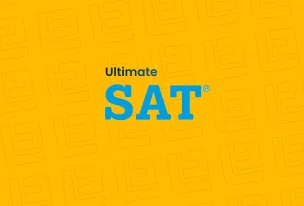Finding scholarships is a crucial step in pursuing a better education and expanding professional prospects. Finding scholarships, however, is a difficult procedure that needs considerable planning. To get the desired scholarship, one must go through a number of different scholarship selection procedures and stages. In order for you to effectively obtain the desired scholarship, we will cover many sorts of scholarship selection in this post and offer recommendations for success at each stage.
Getting to Know the Procedures for Studying in America for Beginners
Administrative Selection
The administrative selection is a crucial first step in the scholarship application process. Prospective scholarship recipients must now carefully research the qualifications for the award and make sure they satisfy all requirements. These prerequisites may include standards like academic performance, financial need, or particular study interests.
The next step for potential scholarship applicants is to collect the required paperwork in accordance with the rules. Applicants often need to submit graduation certificates, academic transcripts, recommendation letters, and essays as part of the application process. Proof that the scholarship applicant has completed prior education is provided by the graduation certificate. Their prior academic successes are displayed on their academic transcript. People who can offer unbiased feedback about the scholarship applicant’s skills and potential write recommendation letters. The essay gives the scholarship applicant the chance to describe why they deserve the grant and to discuss their objectives, driving forces, and course of study.
It is essential to make sure that all necessary paperwork are complete and presented by the deadline during the administrative selection phase. Applicants must adhere to the specific document submission guidelines, whether by mail, email, or online portal. It is advisable for scholarship applicants to pay close attention to the caliber and applicability of the content when drafting these documents. Make sure that your academic records, letters of recommendation, and essay demonstrate how you meet the scholarship provider’s expectations for your skills, accomplishments, and motivations. You can increase your chances of success in the administrative selection stage by clearly and consistently expressing your study objectives, personal interests, and intended impact of the scholarship.
IELTS Test Simulation: The Right Way to Get a High Score
Document Evaluation

Prospective scholarship applicants will move on to the document selection stage after the administrative selection phase. Further analysis of the given materials is done at this level. In order to better understand the backgrounds and credentials of the potential scholarship recipients, the selection committee will carefully review the submitted materials.
The document selection stage frequently necessitates prospective scholarship candidates to complete forms and write essays, in addition to submitting documents such graduation certificates, academic transcripts, and reference letters. The forms are used to gather crucial data on the potential scholarship winners’ personal details, educational history, experiences, and intellectual interests. On the other side, the essay gives potential scholarship applicants a chance to express themselves in greater depth. They can go into further detail in the essay about their intended course of study, their qualifications for the scholarship, and how it will advance their objectives and desires.
Prospective scholarship applicants must submit clear, pertinent information that proves their dedication to the chosen field of study during the document selection phase. The likelihood of success at this stage will be increased by writing a well-structured essay that emphasizes interests, experiences, and prior triumphs in pertinent subjects and conveys a clear vision that is in line with the intended study program.
List of Fully Funded Scholarships in Canada
Language Proficiency Test

Prospective scholarship applicants must successfully complete the document selection stage before moving on to the language competence test stage. The purpose of this step is to evaluate the candidates’ language skills, especially in English. The TOEFL (Test of English as a Foreign Language) or IELTS (International English Language Testing System) are the two most widely used language competence exams.
The reading, listening, speaking, and writing sections of the TOEFL and IELTS tests are intended to gauge a person’s competency in these four language skills. Candidates for scholarships will be put to the test in terms of their reading comprehension, conversational comprehension, oral communication skills, and English writing proficiency.
The Reading, Listening, Speaking, and Writing portions of the TOEFL exam are primarily computer-based. The IELTS test, on the other hand, has components for Speaking, Listening, Reading, and Writing and can be taken on paper or online.
The selection committee will learn about the candidates’ competency in English through the results of the language proficiency exam. High exam results demonstrate a strong command of the language and readiness for international study.
Fully Funded Scholarships 2023 – Opportunity to Get Fully Funded Scholarships for This Year
Interview

The interview is the last phase of the scholarship selection procedure after passing the language test stage. The scholarship selection committee will conduct interviews with potential scholarship recipients at this point. The interview gives the selection committee a chance to learn more about the potential winners, analyze their communication abilities, and determine whether they would be a good fit for the scholarship program or organization.
Most interviews for scholarships are conducted in person or via teleconference. Before the interview, applicants for scholarships should properly prepare. Here are some things to consider:
1. Knowledge about the scholarship
The goal, values, and available programs of the scholarship should be thoroughly researched by prospective scholarship recipients. This will enable students to give pertinent responses and exhibit a keen interest in the scholarship.
2. Self-awareness
Candidates for scholarships should have a solid awareness of their backgrounds, aptitudes, interests, and professional objectives. They must be able to articulate why they are deserving of the scholarship and how it will aid them in achieving their objectives.
3. Communication skills
Candidates for scholarships should be able to speak clearly and persuasively throughout the interview. They should be mindful of the speed at which they communicate, utilize appropriate grammar, and convey their ideas effectively. Maintaining eye contact, responding appropriately, and acting in a warm and assured manner are crucial.
4. Preparedness for potential questions
To prepare for a scholarship interview, prospective scholarship recipients should practice answering common questions about their motivation, goals, academic experiences, and future plans. They can also practice with friends or family.
5. Positive attitude
Prospective scholarship applicants should have a positive outlook and show respect, humility, and receptivity to the selection committee’s comments and ideas. A positive impression can be made on the selecting committee by having a positive attitude and approach.
It’s crucial to remain composed, project confidence, and be honest about oneself and one’s aspirations in the scholarship interview. Prospective scholarship recipients should thank the selection committee for the opportunity after the interview.
Gather Information Thoroughly

Researching the scholarship we want to apply for in order to gather information is the first step. As many companies, institutions, and colleges post information about the scholarships they give on their official websites, the internet is a useful source of information. We might also look for pamphlets or scholarship guides that educational institutions or pertinent organizations have provided.
However, it’s crucial to make sure the sources we consult for information are trustworthy and truthful. By determining whether the institution or group is reliable and has a solid reputation, we can confirm the veracity of the material. Additionally, we can consult people who have earned the same scholarship or get in touch with former participants in the scholarship program we are interested in for assistance.
We need to acquire details regarding the prerequisites, application dates, application processes, required paperwork, and scholarship evaluation standards during this research process. We may better ourselves and increase our chances of receiving the desired scholarship by clearly knowing the scholarship we want to apply for.
Pay Attention to Requirements and Application Deadlines
One of the most important steps in the scholarship application process is to pay close attention to the specifications and submission dates. Different criteria apply to different scholarships, such as minimum GPAs, educational backgrounds, employment histories, or particular academic accomplishments. Before submitting the application, it is critical to confirm that we have complied with all the criteria established by the scholarship giver.
It’s also crucial to pay close attention to the application deadlines. We risk being disqualified from consideration if we submit our application after a deadline for some scholarships. Therefore, it’s crucial to plan and gather all the required materials long before the application date.
It is advised to make a list of all the prerequisites and submission dates for the scholarships we wish to apply for in order to avoid any delays. We can include the deadlines, relevant paperwork, and application completion procedures in this list. Thus, we can properly organize our time and make sure that all conditions are satisfied before completing the scholarship application.
What is the minimum IELTS test score for studying abroad? There is a University of Your Destination…
Create a Clear Study Plan

It’s critical that we have specific objectives while developing a study plan. These objectives might relate to the subject matter we want to focus on, the abilities we want to hone, or the profession we want to follow once we’ve finished school. By setting specific objectives, we may guide our actions and choose courses that are pertinent to our needs and interests.
A solid study plan also aids in determining which classes we must enroll in each semester. We can create a list of required courses based on the program’s or university’s defined curriculum. A study plan can also assist us in picking courses without becoming lost or confused, hastening the graduation process.
A study plan also gives us a general idea of what will happen after we finish school. After graduation, we can plan the job path we want to take, the advanced programs we want to attend, or the personal growth we want to do. The study plan demonstrates our dedication to effectively finishing our education and making the most of the resources offered.
We may make the most of our time and resources by creating a well-thought-out study plan. The study plan aids us in setting priorities, avoiding poor course selection, and maintaining our attention on our academic objectives. A study plan can also inspire us and give us a sense of accountability for furthering our education.
Write a Strong Essay
We get the chance to communicate our personalities, educational objectives, and academic potential to the scholarship selection committee by writing an essay, which is a crucial part of the application process. It’s crucial to pay attention to a suitable and efficient writing structure when composing an essay.
First and foremost, the essay must begin with an attention-grabbing introduction to draw the reader in. Anecdotes from your own life, rhetorical questions, or intriguing statements that are pertinent to the subject can all be used in the beginning.
The major ideas should then be developed in a clear and coherent manner. Every paragraph should have a single core point that is backed by pertinent details or instances. It’s crucial to utilize simple, short words and to stay away from repetition and unclear language.
Furthermore, we need to spell out our educational objectives and how the scholarship will assist us get there. In order to further our educational goals, we can highlight pertinent experiences, accomplishments, or extracurricular activities.
Finally, we should wrap up the essay with a succinct recap of our arguments. It is crucial to make an impact on the reader and refer back to the essay’s introduction or main theme.
It’s crucial to proofread your essay carefully for language and spelling issues. To ensure that our writing is clear and has proper grammar, we can either proofread it ourselves or ask someone else to help. In addition, we should be mindful of the word count and refrain from writing too much or too little.
We can produce a powerful essay that effectively presents our qualifications to the scholarship selection committee by adhering to a good and suitable writing format.
LPDP Scholarship: Opportunities to Realize Your Dream of Studying Abroad
Prepare for the Interview

The interview is an important step in the scholarship selection process since it gives us a chance to speak with the selection committee face-to-face and display our personalities and communication abilities. There are a number of things that need to be prepared in order to succeed in the interview.
First and foremost, we need to look polished and professional. Making a professional first impression by dressing correctly for the situation shows that we value the chance that has been provided to us. A comfortable interview setting can be created by speaking with a polite and warm tone.
Second, we must be ready to respond to inquiries succinctly and clearly. Before offering organized responses, it’s critical to fully comprehend the questions. To bolster our responses and demonstrate their applicability to both our academic objectives and the scholarship we are looking for, we can include specific instances or personal anecdotes.
Additionally, it’s critical to project strong self-confidence. Maintaining eye contact with the interviewer and speaking in a clear, confident manner conveys our conviction in what we are saying. Smiling and maintaining an erect stance are examples of positive body language that can also convey confidence.
We must also listen intently and respond appropriately during the interview. Making a good impression on the selection committee can also be improved by posing pertinent questions and demonstrating genuine interest in the scholarship and the program being provided.
We may approach the interview with confidence and make a positive impression on the scholarship selection committee if we prepare thoroughly and have the correct mindset. It’s critical to maintain composure, be truthful in our responses, and show our dedication to learning and growth.
Maintain Good Academic Performance

The selection of scholarship recipients is heavily influenced by strong academic performance. As a result, it is crucial for us to consistently maintain high academic standards and make an effort to learn diligently. To do this, there are many factors to take into account.
First, we need to be dedicated to and disciplined about our study. We may manage responsibilities and subject materials more efficiently by making a study plan, setting a regular study timetable, and successfully managing our time.
Additionally, it’s critical to identify efficient teaching strategies. Since everyone has a unique learning style, we must identify the strategies that suit us the most. It is possible to increase understanding and information retention by using strategies like reading, taking notes, or rereading the content.
We also need to keep a balance with other activities in order to retain strong academic achievement. Participating in groups or social activities can help you get useful experiences and improve other abilities like leadership and teamwork.





